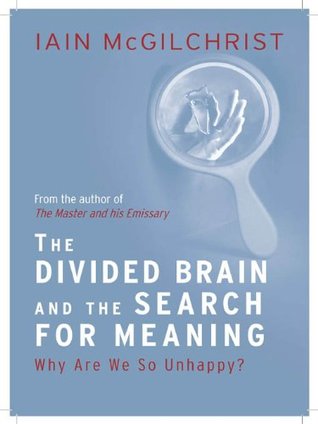More on this book
Community
Kindle Notes & Highlights
we can only know the world as we have inevitably shaped it by the nature of our attention.
What we do not expect to find, we just will not see: much elegant research demonstrates that we are essentially blind to what we do not think is there.
We do not understand a poem as a doctor understands a patient, and that, in turn, is different from how an accountant understands a business plan. This is not a flaw in poetry, or medical practice, that could be remedied if only it were all rationalised mechanically. The arts and humanities need to remember this: they
If I say ‘it is hot in here’, your right hemisphere knows that what I mean is ‘please open the window’, while your left hemisphere thinks I am offering helpful meteorological data.
Is it logical to rule out the possibility, understood for millennia, that there was a difference between the sort of knowledge that is available to logos and the sort that is available to mythos?
The left hemisphere is not in touch with the world. It is demonstrably self-deceiving, and confabulates – makes up a story, when it cannot understand something, and tells it with conviction.
Meaning emerges from engagement with the world, not from abstract contemplation of it.


